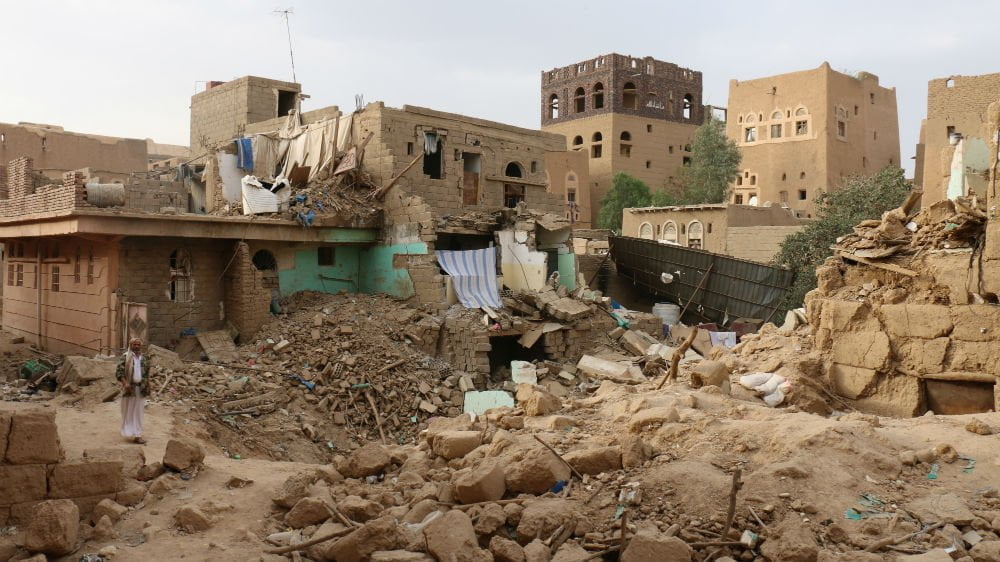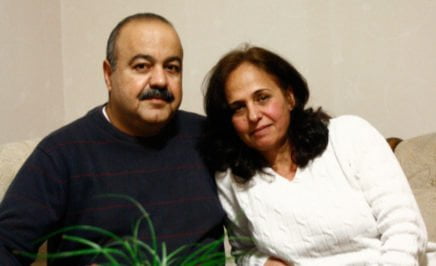Participants to the Yemen talks in Sweden should prioritise key human rights issues, Human Rights Watch, Amnesty International, and Mwatana Organization for Human Rights said today.
The issues should include removing impediments to the free flow of humanitarian aid and vital commercial goods such as food and fuel, the fate of detainees, and ending attacks on civilians and civilian objects. Talks should also address how best to ensure justice, truth, and reparation for victims of war crimes.
“While the warring parties may narrowly focus on their strategic interests, concerned governments should press them to ensure that these talks also take into account the need to protect millions of Yemeni civilians,” said Priyanka Motaparthy, acting Emergencies director at Human Rights Watch.
“If human rights take a back seat to political goals, Yemenis may be no better off than before these talks began.”
The talks, the first since 2016, reportedly began with discussions around an exchange of prisoners, securing agreement around the short-term future of Hodeidah, a key port city, and reopening the Sana’a airport to commercial traffic.
Addressing starvation
In October 2018, the United Nations Emergency Relief Coordinator warned that 14 million people – half of Yemen’s population – could be at risk of starvation if immediate steps are not taken to address the humanitarian situation. To comply with international humanitarian law, warring parties should take immediate steps to facilitate the flow of aid, and commercial supplies to the broader population and access by humanitarian agencies.
During the Sweden talks, the Yemeni government – and, by extension, the Saudi Arabia and United Arab Emirates-led coalition – should make a commitment to reopen Sana’a airport to commercial traffic. Meanwhile, the government, and the coalition that backs it, and the Huthis should ensure that humanitarian aid and lifesaving commercial supplies can reach the civilian population through Hodeidah and Saleef ports and onward to those who need these supplies in Yemen.
The coalition suspended all commercial flights to Sana’a in August 2016. Aid agencies have pressed the coalition to reopen the country’s main airport, noting that commercial flights “often bring in vital supplies and allow the free movement of civilians.”
Mwatana, a leading Yemeni human rights organization, documented cases in which people with chronic illnesses were unable to travel abroad for treatment, including one woman needing heart surgery who died. Hodeidah and the nearby Saleef port are vital entry points for food, fuel, and medicine that the population needs for survival. While fighting in Hodeidah has de-escalated since 12 November, armed clashes continue on the southwest and eastern edges of the city, as well as in several nearby districts. A recent UN report stated that deliveries to Hodeidah’s port decreased 47% during a two-week period in November.
“Parties can agree to very specific steps, implemented immediately, that are necessary to save Yemeni lives,” said Radhiya al-Mutawakel, Chairperson of Mwatana Organization for Human Rights.
“Releasing the arbitrarily detained, opening the airport, and ensuring commercial shippers free access to the port, are necessary steps to support the civilian population.”
Huthi forces have blocked and confiscated aid, denied access to populations in need, and restricted the movement of ill civilians and aid workers, with an acute impact on Yemen’s third largest city, Ta’iz. International humanitarian law requires all parties to allow and facilitate the “rapid and unimpeded passage” of humanitarian aid and humanitarian workers to affected civilians, and to allow free and safe passage for civilians who wish to leave areas. In Sweden, the warring parties should prioritize agreeing to concrete steps to ensure that civilians have safe passage out of areas particularly affected by fighting, like Ta’iz and Hodeidah.
The warring parties have engaged in armed conflict in a manner that has also exacerbated the humanitarian crisis and deepened civilian suffering, the rights groups said. The coalition has repeatedly struck infrastructure critical to the civilian population, while Huthi forces have repeatedly laid mines as they withdrew from areas, including along Yemen’s western coast, hindering humanitarian access, and preventing civilians’ safe return home. The Huthi armed group should pledge to provide maps of mined areas to facilitate humanitarian access, and they should stop using antipersonnel mines altogether.
Fate of detainees and forcibly disappeared
Talks should also address the fate of forcibly disappeared people and detainees, in particular those arbitrarily detained and held without charge by the Huthis, the Hadi government, and the United Arab Emirates.
Human Rights Watch, Amnesty International, Mwatana, the UN, and others have documented arbitrary detention, mistreatment, and torture in Huthi, Yemeni and UAE-controlled facilities, as well as cases of people forcibly disappeared.
Ahead of the talks, the ICRC announced that the warring parties had agreed to “the release, transfer and repatriation of conflict-related detainees.” All parties should also release anyone arbitrarily detained or detained for involvement in peaceful political activities, such as journalists, human rights defenders, and members of the Bahá’í community, as well as vulnerable groups, such as children. While both sides have recruited children during the conflict, the Huthis are responsible for the majority of child recruitment cases verified by the UN. During the talks, the parties to the conflict should agree to release captured children and pledge to end use of child soldiers.
The warring parties should immediately provide a list of all detention sites and of everyone currently in detention or who have died in custody. Parties should allow international monitors immediate access to unofficial detention facilities.
Setting the stage for accountability and redress
Talks should also allow for criminal investigations and, if there is sufficient admissible evidence, prosecutions of all those suspected of crimes under international law. While the talks in Sweden are set to focus on immediate confidence-building measures, any future discussions should support international investigations, transitional justice, and full reparation to victims as key elements of any agreement.
Impartial investigations into alleged war crimes are only the first step toward meeting international legal obligations regarding accountability for abuses and justice for victims. Coalition members should investigate alleged serious violations by their armed forces and people within their jurisdiction and appropriately prosecute anyone responsible for war crimes, the groups said. The coalition should also provide reparation to victims of unlawful attacks and support a unified, comprehensive mechanism for providing ex gratia (“condolence”) payments to civilians who suffer losses due to military operations. The Huthi armed group should appropriately investigate commanders and fighters suspected of criminal responsibility for crimes under international law, and provide redress to civilian victims.
“While many politicians have tried to say justice, truth, and reparation should not be an issue in these discussions, Yemenis deserve justice for the harm they have suffered,” said Lynn Maalouf, Amnesty International’s Deputy Regional Director for the Middle East and North Africa.
“The obligation to investigate unlawful attacks doesn’t start at the end of the conflict, it applies now. Investigations, prosecutions and redress are meant both to address the wrongs already done but also to help pave the way for preventing future wrongs.”







